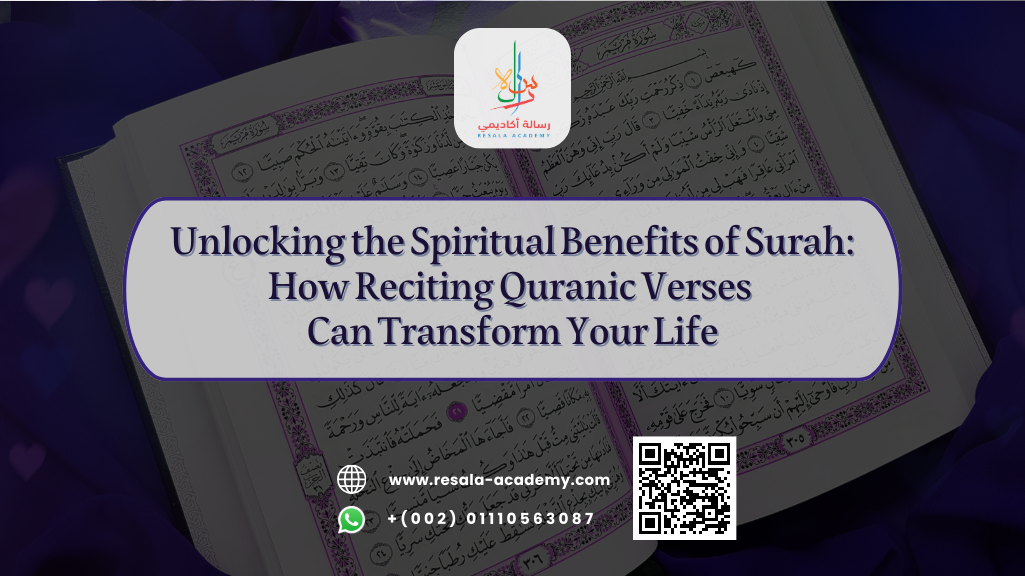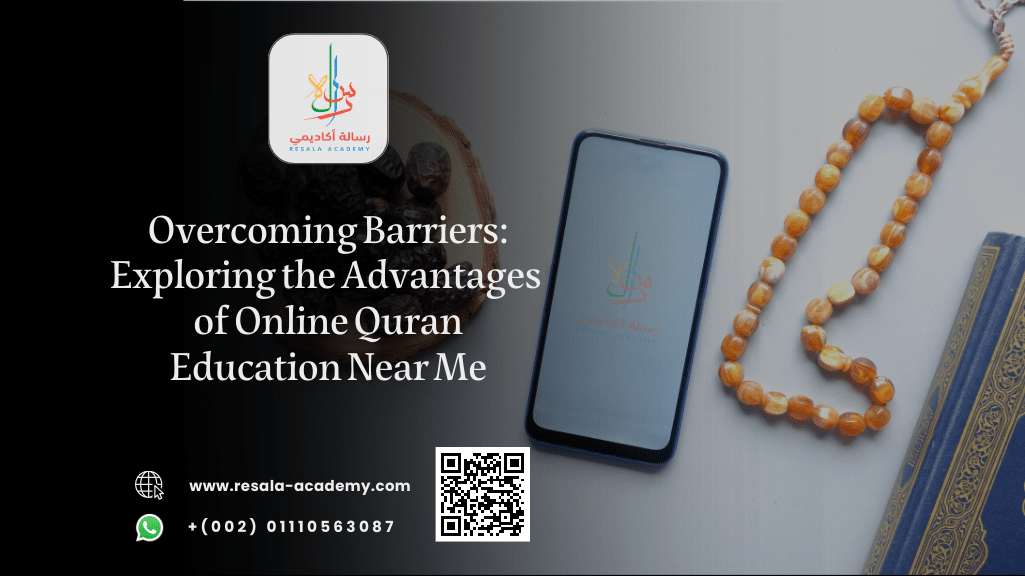Table of Contents
Tawakkul: The Heart of Islamic Faith and Trust in Allah
In the journey of understanding Islam, few concepts resonate as deeply and universally as Tawakkul. This Arabic term, often translated as “trust in Allah,” encapsulates a profound spiritual state that lies at the core of a Muslim’s relationship with their Creator. For non-native speakers exploring the depths of the Arabic language, Quranic teachings, and Islamic spirituality, understanding Tawakkul is both enlightening and transformative.
In this comprehensive article, we will explore the meaning, significance, and practical applications of Tawakkul, drawing from the Quran, Hadith, and classical Islamic scholarship. We will also highlight how institutions like Resala Academy are empowering non-native speakers to connect with these profound concepts through structured Arabic and Quran courses.
What is Tawakkul?
Tawakkul (توكل) is an Arabic term derived from the root word و-ك-ل (w-k-l), which means to entrust or to rely upon. In Islamic terminology, Tawakkul refers to placing complete trust and reliance on Allah (God) while simultaneously taking the necessary actions within one’s capacity.
It is not passive resignation, but rather an active spiritual state where a believer does their best and leaves the outcome to Allah, trusting in His wisdom, mercy, and plan.
The Quranic Foundation of Tawakkul
The concept of Tawakkul is deeply rooted in the Quran. Allah repeatedly commands the believers to trust in Him, reminding them that He is sufficient as a protector and helper.
1. Surah Al-Imran (3:159)
فَإِذَا عَزَمْتَ فَتَوَكَّلْ عَلَى اللَّهِ ۚ إِنَّ اللَّهَ يُحِبُّ الْمُتَوَكِّلِينَ
“Then when you have taken a decision, put your trust in Allah. Certainly, Allah loves those who rely on Him.”
This verse highlights the balance between action (decision-making) and reliance on Allah. It emphasizes that Tawakkul is not about inaction but about trusting Allah after doing one’s part.
2. Surah At-Talaq (65:3)
وَمَن يَتَوَكَّلْ عَلَى اللَّهِ فَهُوَ حَسْبُهُ
“And whoever relies upon Allah – then He is sufficient for him.”
This verse assures believers that Allah is enough for those who place their trust in Him. It’s a powerful reminder of divine sufficiency and support.
Read more about: Taqwa: The Essence of Islamic Spirituality and Consciousness
Tawakkul in the Hadith
The Prophet Muhammad ﷺ emphasized Tawakkul in numerous Hadiths, illustrating its practical and spiritual dimensions.
Hadith on the Camel
أَعْقِلْهَا وَتَوَكَّلْ
“Tie your camel and trust in Allah.”
This famous Hadith encapsulates the essence of Tawakkul. The Prophet ﷺ teaches that while we must take precautions and do our part, we must ultimately trust in Allah for the results.
Read more about: Sajdah in the Quran: A Divine Act of Submission and Reflection
The Spiritual Dimensions of Tawakkul
Tawakkul is not just a concept but a state of the heart. It reflects a believer’s deep conviction in:
- Allah’s Omnipotence: Believing that Allah controls all affairs.
- Allah’s Wisdom: Trusting that His plan is better than ours.
- Allah’s Mercy: Knowing that He wants the best for His servants.
These beliefs cultivate inner peace, reduce anxiety, and strengthen one’s relationship with Allah.
Practical Examples of Tawakkul in Daily Life
Understanding Tawakkul is one thing; living it is another. Here are some practical scenarios where Tawakkul plays a vital role:
1. Seeking Employment
A person applies for jobs, prepares for interviews, and networks. After doing all this, they leave the outcome to Allah, trusting that He will provide what is best.
2. Health and Illness
A believer takes medicine, consults doctors, and follows treatments but ultimately trusts that healing comes from Allah.
3. Studying and Exams
Students study diligently and prepare for exams. Tawakkul means trusting Allah with the results, knowing that effort is rewarded, and outcomes are in His hands.
Tawakkul in the Lives of the Prophets
The lives of the Prophets are shining examples of Tawakkul in action.
Prophet Ibrahim (Abraham) عليه السلام
When thrown into the fire by his people, Ibrahim عليه السلام said:
حَسْبُنَا اللَّهُ وَنِعْمَ الْوَكِيلُ
“Allah is sufficient for us, and He is the best disposer of affairs.”
Allah responded by making the fire cool and safe for him.
Prophet Musa (Moses) عليه السلام
When Pharaoh’s army approached, Musa عليه السلام declared:
إِنَّ مَعِيَ رَبِّي سَيَهْدِينِ
“Indeed, my Lord is with me; He will guide me.”
His trust led to the miraculous parting of the sea.
Tawakkul and the Arabic Linguistic Structure: Exploring Deeper Layers of Meaning
- Tawakkul is more than a theological term—its morphological structure in Arabic reveals layers of spiritual depth. Derived from the fifth form of the verb تَوَكَّلَ, it implies a deliberate and continuous act of entrusting oneself to Allah, not a one-time occurrence.
- The form V verb pattern (تَفَعُّل) in Arabic grammar signifies intensification and repetition, indicating that Tawakkul is a sustained spiritual discipline, not a passive state.
- Understanding this structure helps learners appreciate the nuanced beauty of Quranic Arabic, where every verb form carries theological and emotional weight.
- By studying Arabic morphology through platforms like Resala Academy, students uncover the linguistic sophistication behind terms like Tawakkul, enhancing both comprehension and spiritual connection.
- This linguistic insight is particularly valuable for non-native speakers aiming to decode Quranic expressions authentically and internalize their meanings beyond translation.
Cultivating Tawakkul Through Quranic Vocabulary and Tafsir
- Mastery of Quranic vocabulary related to Tawakkul—such as الوكيل (Al-Wakeel – The Trustee), حسبنا (Hasbuna – Sufficient for us), and توكلوا (they relied)—enables learners to identify recurring themes of divine reliance across multiple surahs.
- Engaging with classical and contemporary Tafsir (Quranic exegesis) provides context for how Tawakkul is applied in various scenarios, from personal trials to communal challenges.
- For example, in Surah Al-Anfal, the command to “place your trust in Allah if you are believers” links Tawakkul directly to the strength of Iman (faith), showing that trust is a marker of spiritual maturity.
- At Resala Academy, students explore these connections through guided Tafsir sessions, where instructors break down verses linguistically and theologically, making the concept of Tawakkul practically applicable.
- This approach not only strengthens Arabic proficiency but also deepens one’s spiritual literacy, empowering learners to live by Quranic values with clarity and conviction.
Tawakkul vs. Tawaakul: A Deeper Comparative Insight
Understanding the nuanced distinction between Tawakkul (توكل) and Tawaakul (تواكل) is essential for anyone studying Arabic, Quranic principles, or Islamic theology. Though they may sound similar, these two terms represent fundamentally different attitudes toward divine reliance and personal responsibility. B
Core Definitions and Linguistic Roots
Tawakkul:
- Derived from the triliteral Arabic root و-ك-ل (w-k-l).
- Implies active reliance on Allah after exerting personal effort.
- Reflects a balance between human action and divine trust.
Tawaakul:
- A distorted form of the same root, often used to describe passive dependence.
- Indicates negligence or laziness under the guise of religious trust.
- Not supported by Islamic teachings or Prophetic practice.
Theological and Ethical Implications
Tawakkul:
- Encourages believers to engage in cause and effect while maintaining spiritual submission.
- Reinforces the concept of Qadr (Divine Decree) without denying human agency.
- Promotes ethical responsibility and accountability in both worldly and spiritual matters.
Tawaakul:
- Misinterprets Qadr as a reason to avoid effort or planning.
- Can lead to fatalism, which contradicts the proactive spirit of Islam.
- Undermines the Islamic work ethic and the Sunnah of the Prophet ﷺ.
Quranic and Prophetic Guidance
Tawakkul is explicitly praised in the Quran:
إِنَّ ٱللَّهَ يُحِبُّ ٱلْمُتَوَكِّلِينَ
“Indeed, Allah loves those who rely [upon Him].”
Surah Al-Imran 3:159
The Prophet Muhammad ﷺ demonstrated Tawakkul in all aspects of life:
- He prepared for battles, strategized, and sought counsel—then placed his trust in Allah.
Tawaakul, by contrast, is never endorsed in the Quran or Sunnah:
- There is no evidence where the Prophet ﷺ or his companions abandoned effort in favor of mere hope.
Psychological and Emotional Impact
Tawakkul:
- Builds emotional resilience and mental clarity.
- Encourages goal-setting, planning, and self-discipline.
- Reduces anxiety by placing outcomes in Allah’s hands after due effort.
Tawaakul:
- Can foster helplessness, procrastination, and blame-shifting.
- Often leads to disappointment due to unrealistic expectations.
- May result in spiritual confusion when outcomes don’t align with passive hopes.
Real-Life Applications and Examples
Tawakkul in Career:
- A student studies diligently, applies for jobs, and networks—then trusts Allah for the outcome.
Tawaakul in Career:
- A person refuses to study or apply, claiming “Allah will provide” without any effort.
Tawakkul in Health:
- One takes prescribed medications and adopts a healthy lifestyle while praying for healing.
Tawaakul in Health:
- Someone refuses treatment, assuming that faith alone will suffice, neglecting medical advice.
Islamic Scholarship and Classical Views
Imam Ibn Qayyim al-Jawziyyah:
- Described Tawakkul as “the half of religion,” the other half being Inabah (turning to Allah).
- Warned against Tawaakul as a spiritual delusion that weakens the soul.
Imam Al-Ghazali:
- Emphasized that true Tawakkul is rooted in knowledge, action, and trust.
- Criticized Tawaakul as a misguided imitation of piety.
Shortly, it’s essential to differentiate between Tawakkul (توكل) and Tawaakul (تواكل).
- Tawakkul is active trust in Allah after taking action.
- Tawaakul is passive reliance without effort, which is discouraged in Islam.
The Prophet Muhammad ﷺ condemned laziness and emphasized the importance of striving while relying on Allah.
How Resala Academy Helps You Master These Concepts
- Learn the linguistic precision of Arabic terms like Tawakkul and Tawaakul.
- Understand the Quranic context of trust and reliance through expert-led tafsir.
- Explore Hadith sciences to see how the Prophet ﷺ modeled these values.
- Practice real-life application through interactive case studies and live discussions.
Explore Resala Academy’s Arabic and Quran programs to gain authentic, in-depth knowledge of Islamic principles.
Learning Tawakkul Through Arabic and Quranic Studies
For non-native speakers, understanding Tawakkul in its original Arabic context is deeply enriching. Arabic carries layers of meaning that translations often cannot fully capture.
Why Learn Arabic?
- Understand the Quran directly.
- Grasp the spiritual depth of Islamic concepts.
- Enhance your connection with Islamic teachings.
Why Choose Resala Academy?
Resala Academy is a leading online platform offering:
- Arabic for non-native speakers
- Quran recitation and memorization courses
- Islamic studies with qualified scholars
- Flexible schedules and personalized learning
With expert instructors and a supportive environment, Resala Academy helps students internalize concepts like Tawakkul through immersive learning.
Trust the Journey: Enroll with Resala Academy Today!
Are you ready to deepen your understanding of Tawakkul and other profound Islamic concepts? Do you want to connect with the Quran in its original language and enrich your spiritual journey?
Resala Academy is your gateway to mastering Arabic and Quranic studies. Whether you’re a beginner or looking to advance your knowledge, our courses are designed to empower you with:
- Expert guidance from native Arabic speakers
- Interactive lessons tailored to your pace
- Real-life application of Islamic values
- A global community of passionate learners
Don’t just learn the language — live the message. Don’t just read the Quran — understand it from the heart.
Start your journey with Resala Academy today and let Tawakkul guide your path.
Frequently Asked Questions (FAQs)
1. What does Tawakkul mean in Islam?
Tawakkul means placing complete trust in Allah while taking the necessary steps within your capacity. It is an active form of reliance that combines effort with spiritual submission.
2. Is Tawakkul the same as giving up?
No. Tawakkul is not about giving up or being passive. It involves doing your best and trusting Allah with the results. The Prophet ﷺ said: “Tie your camel and trust in Allah.” (Sunan al-Tirmidhi 2517)
3. How can I develop Tawakkul in my life?
You can cultivate Tawakkul by:
- Strengthening your relationship with Allah through prayer and Quran.
- Reflecting on His names and attributes (e.g., Al-Wakeel – The Trustee).
- Taking action and leaving the outcome to Him.
Explore Resala Academy’s Quran courses to deepen your understanding.
4. Why is Tawakkul important for Muslims?
Tawakkul brings peace, reduces anxiety, and strengthens faith. It reminds believers that Allah is in control and that His plan is always best, even when we don’t understand it.
5. Can non-Arabic speakers understand Tawakkul deeply?
Absolutely. While translations help, learning Arabic allows you to grasp the full depth of concepts like Tawakkul. Resala Academy offers specialized online Arabic courses for non-native speakers to help you connect with the Quran and Islamic teachings authentically.
Conclusion
Tawakkul is more than a concept; it’s a way of life. It teaches us to strive with sincerity, act with purpose, and surrender with trust. In a world full of uncertainties, Tawakkul anchors the believer to the certainty of Allah’s wisdom and mercy.
For non-native speakers, understanding Tawakkul through Arabic and Quranic studies opens the door to a deeper spiritual connection. With the support of Resala Academy, you can embark on a transformative journey that not only teaches you the language of the Quran but also the heart of its message.
Let Tawakkul be your guide. Let Resala Academy be your companion. Explore more at Resala Academy and start your journey today.




